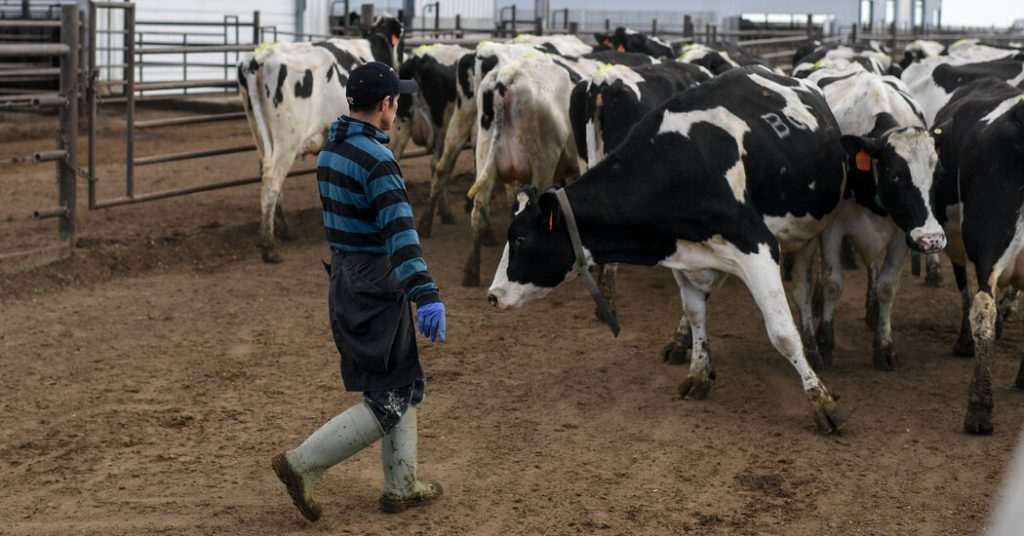H5N1, a deadly bird flu virus, is in a position to easily move between species and pose a significant threat to humans. The virus has been found circulating among dairy cows in the United States, with viral fragments detected in the commercial milk supply chain. Dairy workers, particularly those involved in on-farm work, milk processing plants, and slaughterhouses, are at high risk for exposure to H5N1. However, testing among this vulnerable population has been insufficient, leaving them at risk for infection and potentially contributing to the spread of the virus.
The lack of adequate testing and monitoring of dairy workers for H5N1 is concerning, especially given the potential for the virus to cause a new pandemic. Many dairy workers in the U.S. are from Mexico and Central American countries and may be undocumented, leading to concerns about seeking testing and treatment due to fears of immigration enforcement. Communication barriers, including language differences and limited literacy, further complicate efforts to educate and protect these workers from infectious diseases like H5N1.
Low wages, lack of health insurance, and limited access to health care further compound the vulnerability of dairy workers to infectious diseases. Farm owners need to provide personal protective gear and training to ensure the safety and well-being of their workers. Additionally, workers who interact closely with livestock can serve as a valuable resource for surveillance and early detection of emerging disease threats like H5N1, if properly supported by government and public health officials.
Efforts to protect dairy workers from zoonotic diseases like H5N1 are crucial not only for their well-being but for public health as a whole. Empowering the agricultural industry to respond effectively to biological threats is essential in preventing human outbreaks and safeguarding the food supply. Providing widespread testing for H5N1 to dairy workers is an important first step in building resilience against future pandemics and ensuring the safety of all individuals involved in the agricultural industry.
Erin M. Sorrell, Monica Schoch-Spana, and Meghan F. Davis, scholars and professors at Johns Hopkins University, emphasize the urgent need for improved testing and monitoring of dairy workers for H5N1. They stress the importance of supporting these workers to protect them from biological dangers and enhance surveillance efforts against zoonotic diseases. By investing in the health and safety of agricultural workers, we can strengthen our defenses against potential pandemics and safeguard public health for all.


